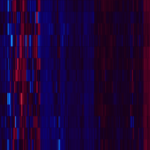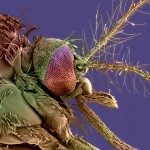Link to Pubmed [PMID] – 35484193
Link to DOI – 10.1038/s41598-022-10977-4
Sci Rep 2022 04; 12(1): 6973
The mosquito Aedes albopictus is an invasive species first detected in Europe in Albania in 1979, and now established in 28 European countries. Temperature is a limiting factor in mosquito activities and in the transmission of associated arboviruses namely chikungunya (CHIKV) and dengue (DENV). Since 2007, local transmissions of CHIKV and DENV have been reported in mainland Europe, mainly in South Europe. Thus, the critical question is how far north transmission could occur. In this context, the Albanian infestation by Ae. albopictus is of interest because the species is present up to 1200 m of altitude; this allows using altitude as a proxy for latitude. Here we show that Ae. albopictus can transmit CHIKV at 28 °C as well as 20 °C, however, the transmission of DENV is only observed at 28 °C. We conclude that if temperature is the key environmental factor limiting transmission, then transmission of CHIKV, but not DENV is feasible in much of Europe.




